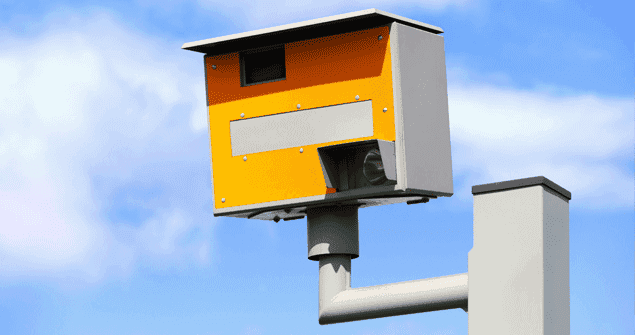
Drivers caught speeding now face bigger fines
Harsher punishments for drivers caught speeding have come into effect this week in England and Wales.
Up until now, people caught doing 51mph in a 30mph zone, or 101mph on a motorway, could be fined up to 100 per cent of their weekly income.
But the new guidelines mean that drivers could now face having to pay a fine worth up to 175 per cent of their weekly earnings.
The Sentencing Council said it wanted a “clear increase in penalty” to reflect the rise in serious speeding offences over the past few years, with 244 people killed in speeding related crashes in 2015.
See how much you can save
Compare van insurance quotes today!
What are the new speeding fine guidelines?
Fines are split into three bands (A, B and C) with the level of sentencing depending on the recorded speed at the time of the incident.
Band A is for the least serious offenses, with drivers able to receive a fine totalling 25-75 per cent of their weekly income and for Band B, 75-125 per cent.
Band C offenders will pay between 125 and 175 per cent of their relevant weekly income in fines, with the starting point for most cases set at 150 per cent.
UK speeding offences and their punishments – band A
| Speed Limit (mph) | Recorded Speed |
|---|---|
| 20 | 21-30 |
| 30 | 31-40 |
| 40 | 41-55 |
| 50 | 51-65 |
| 60 | 61-80 |
| 70 | 71-90 |
| Fine/Points or Disqualification | 25-75% and three points |
UK speeding offences and their punishments – band B
| Speed Limit (mph) | Recorded Speed |
|---|---|
| 20 | 31-40 |
| 30 | 41-50 |
| 40 | 56-65 |
| 50 | 66-75 |
| 60 | 81-90 |
| 70 | 91-100 |
| Fine/Points or Disqualification | 75-125% and seven-28 days or four-six points |
See how much you can save
Compare van insurance quotes today!
UK speeding offences and their punishments – band C
| Speed Limit (mph) | Recorded Speed |
|---|---|
| 20 | 41 and above |
| 30 | 51 and above |
| 40 | 66 and above |
| 50 | 76 and above |
| 60 | 91 and above |
| 70 | 101 and above |
| Fine/Points or Disqualification | 125-175% and seven-56 days or six points |
The maximum fine is not changing, meaning that drivers will not be fined more than £1,000 for speeding, or £2,500 for speeding on a motorway.
Steve Gooding, the director of the RAC foundation, said: "While we broadly support linking the amount of the penalty with income, the cap on the level of fines means that this link is broken for high-income drivers -- hardly a level playing field."
Will the changes work?
The move has been welcomed by motoring associations but Gooding has questioned whether police officers have enough resources to properly enforce the new punishments.
Gooding said: "For speeding penalties to be effective three things have to be true: they have to be severe enough to hurt, motorists need to know what they are and believe there is a realistic prospect of being caught if they go too fast.
"We worry that other pressures on police time will seriously undermine the effectiveness of this stiffening of sanctions."
Gary Rae, the campaigns director for road safety charity Brake, agreed that the important thing is for the new rules to actually be enforced.
Rae said: "Toughening the fines and penalties for speeding is long overdue. I hope that magistrates ensure the new sentences are consistently applied."
The AA president, Edmund King, said: "Responsible drivers will welcome the change coming into force today.
"The majority of drivers who keep to the correct speed, as well as driving to the conditions, won't be affected.
"It is only those who deliberately drive dangerously who will end up in court."
